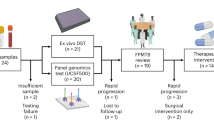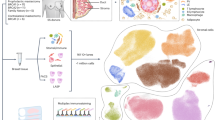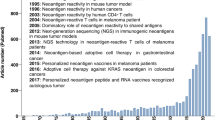Abstract
The majority of studies assessing the contribution of pathogenic germline variants (PGVs) to cancer predisposition have focused on patients with single cancers. We analyzed 45 known cancer predisposition genes (CPGs) in germline samples of 202 patients with hematological malignancies (HMs) plus one or more other independent cancer managed at major tertiary medical centers on two different continents. This included 120 patients with therapy-related myeloid neoplasms (t-MNs), where the HM occurred after cytotoxic treatment for a first malignancy, and 82 patients with multiple cancers in which the HM was not preceded by cytotoxic therapy (MC-HM). Using American College of Medical Genetics/Association for Molecular Pathology variant classification guidelines, 13% of patients had PGVs, most frequently identified in CHEK2 (17% of PGVs), BRCA1 (13%), DDX41 (13%), and TP53 (7%). The frequency of PGVs in MC-HM was higher than in t-MN, although not statistically significant (18 vs. 9%; p = 0.085). The frequency of PGVs in lymphoid and myeloid HM patients was similar (19 vs. 17.5%; p > 0.9). Critically, patients with PGVs in BRCA1, BRCA2 or TP53 did not satisfy current clinical phenotypic criteria for germline testing. Our data suggest that a personal history of multiple cancers, one being a HM, should trigger screening for PGVs.
This is a preview of subscription content, access via your institution
Access options
Subscribe to this journal
Receive 12 print issues and online access
$259.00 per year
only $21.58 per issue
Buy this article
- Purchase on Springer Link
- Instant access to full article PDF
Prices may be subject to local taxes which are calculated during checkout


Similar content being viewed by others
References
Rahman N. Realizing the promise of cancer predisposition genes. Nature. 2014;505:302–8.
Peffault de Latour R, Soulier J. How I treat MDS and AML in Fanconi anemia. Blood. 2016;127:2971–9.
Genetic/Familial High-Risk Assessment: Breast, Ovarian, and Pancreatic. NCCN clinial practice guidelines in Oncology: National Comprehensive Cancer Network; 2020;18. https://doi.org/10.6004/jnccn.2020.0017.
Huang KL, Mashl RJ, Wu Y, Ritter DI, Wang J, Oh C, et al. Pathogenic germline variants in 10,389 adult cancers. Cell. 2018;173:355–70.
Zhang J, Walsh MF, Wu G, Edmonson MN, Gruber TA, Easton J, et al. Germline mutations in predisposition genes in pediatric cancer. N Engl J Med. 2015;373:2336–46.
Arber DA, Orazi A, Hasserjian R, Thiele J, Borowitz MJ, Le Beau MM, et al. The 2016 revision to the World Health Organization classification of myeloid neoplasms and acute leukemia. Blood. 2016;127:2391–405.
Churpek J, Marquez R, Neistadt B, Claussen K, Lee M, Churpek M, et al. Inherited mutations in cancer susceptibility genes are common among breast cancer survivors who develop therapy-related leukemia. Cancer. 2016;122:304–11.
Schulz E, Valentin A, Ulz P, Beham-Schmid C, Lind K, Rupp V, et al. Germline mutations in the DNA damage response genes BRCA1, BRCA2, BARD1 and TP53 in patients with therapy related myeloid neoplasms. J Med Gen. 2012;49:422–8.
Martin MG, Jacoby M, Shao J, Deych E, Graubert T, Walter MJ. BRCA1 and BRCA2 nucleotide variants in young women with therapy related acute myeloid leukemia. Blood. 2009;114:1102.
Voso MT, Fabiani E, Zang Z, Fianchi L, Falconi G, Padella A, et al. Fanconi anemia gene variants in therapy-related myeloid neoplasms. Blood Cancer J. 2015;5:e323.
Guidugli L, Johnson AK, Alkorta-Aranburu G, Nelakuditi V, Arndt K, Churpek JE, et al. Clinical utility of gene panel-based testing for hereditary myelodysplastic syndrome/acute leukemia predisposition syndromes. Leukemia. 2017;31:1226–9.
Singhal D, Wee LYA, Kutyna MM, Chhetri R, Geoghegan J, Schreiber AW, et al. The mutational burden of therapy-related myeloid neoplasms is similar to primary myelodysplastic syndrome but has a distinctive distribution. Leukemia. 2019;33:2842–53.
Richards S, Aziz N, Bale S, Bick D, Das S, Gastier-Foster J, et al. Standards and guidelines for the interpretation of sequence variants: a joint consensus recommendation of the American College of Medical Genetics and Genomics and the Association for Molecular Pathology. Genet Med. 2015;17:405–23.
Bougeard G, Renaux-Petel M, Flaman JM, Charbonnier C, Fermey P, Belotti M, et al. Revisiting li-fraumeni syndrome from TP53 mutation carriers. J Clin Oncol. 2015;33:2345–52.
Lewinsohn M, Brown AL, Weinel LM, Phung C, Rafidi G, Lee MK, et al. Novel germ line DDX41 mutations define families with a lower age of MDS/AML onset and lymphoid malignancies. Blood. 2016;127:1017–23.
Polprasert C, Schulze I, Sekeres MA, Makishima H, Przychodzen B, Hosono N, et al. Inherited and somatic defects in DDX41 in myeloid neoplasms. Cancer Cell. 2015;27:658–70.
Brown AL, Hahn CN, Scott HS. Secondary leukemia in patients with germline transcription factor mutations (RUNX1, GATA2, CEBPA). Blood. 2020;136:24–35.
Feurstein S, Churpek JE, Walsh T, Keel S, Hakkarainen M, Schroeder T, et al. Germline variants drive myelodysplastic syndrome in young adults. Leukemia. 2021. https://doi.org/10.1038/s41375-021-01137-0
Sébert M, Passet M, Raimbault A, Rahmé R, Raffoux E, Sicre de Fontbrune F, et al. Germline DDX41 mutations define a significant entity within adult MDS/AML patients. Blood. 2019;134:1441–4.
Galera P, Hsu AP, Wang W, Droll S, Chen R, Schwartz JR, et al. Donor-derived MDS/AML in families with germline GATA2 mutation. Blood. 2018;132:1994–8.
Berger G, van den Berg E, Sikkema-Raddatz B, Abbott KM, Sinke RJ, Bungener LB, et al. Re-emergence of acute myeloid leukemia in donor cells following allogeneic transplantation in a family with a germline DDX41 mutation. Leukemia. 2017;31:520–2.
Xiao H, Shi J, Luo Y, Tan Y, He J, Xie W, et al. First report of multiple CEBPA mutations contributing to donor origin of leukemia relapse after allogeneic hematopoietic stem cell transplantation. Blood. 2011;117:5257–60.
Dietz AC, Orchard PJ, Baker KS, Giller RH, Savage SA, Alter BP, et al. Disease-specific hematopoietic cell transplantation: nonmyeloablative conditioning regimen for dyskeratosis congenita. Bone Marrow Transpl. 2011;46:98–104.
Ebens CL, MacMillan ML, Wagner JE. Hematopoietic cell transplantation in Fanconi anemia: current evidence, challenges and recommendations. Expert Rev Hematol. 2017;10:81–97.
Abou Tayoun AN, Pesaran T, DiStefano MT, Oza A, Rehm HL, Biesecker LG, et al. Recommendations for interpreting the loss of function PVS1 ACMG/AMP variant criterion. Hum Mutat. 2018;39:1517–24.
Brnich SE, Abou Tayoun AN, Couch FJ, Cutting GR, Greenblatt MS, Heinen CD, et al. Recommendations for application of the functional evidence PS3/BS3 criterion using the ACMG/AMP sequence variant interpretation framework. Genome Med. 2019;12:3.
Ruijs MW, Verhoef S, Rookus MA, Pruntel R, van der Hout AH, Hogervorst FB, et al. TP53 germline mutation testing in 180 families suspected of Li-Fraumeni syndrome: mutation detection rate and relative frequency of cancers in different familial phenotypes. J Med Genet. 2010;47:421–8.
Chompret A, Abel A, Stoppa-Lyonnet D, Brugieres L, Pages S, Feunteun J, et al. Sensitivity and predictive value of criteria for p53 germline mutation screening. J Med Genet. 2001;38:43–7.
Tinat J, Bougeard G, Baert-Desurmont S, Vasseur S, Martin C, Bouvignies E, et al. 2009 Version of the Chompret Criteria for Li Fraumeni Syndrome. J Clin Oncol. 2009;27:e108–9.
Varley JM, Thorncroft M, McGown G, Appleby J, Kelsey AM, Tricker KJ, et al. A detailed study of loss of heterozygosity on chromosome 17 in tumours from Li–Fraumeni patients carrying a mutation to the TP53 gene. Oncogene. 1997;14:865–71.
Srivastava S, Tong YA, Devadas K, Zou ZQ, Sykes VW, Chen Y, et al. Detection of both mutant and wild-type p53 protein in normal skin fibroblasts and demonstration of a shared ‘second hit’ on p53 in diverse tumors from a cancer-prone family with Li-Fraumeni syndrome. Oncogene. 1992;7:987–91.
Metzger AK, Sheffield VC, Duyk G, Daneshvar L, Edwards MS, Cogen PH. Identification of a germ-line mutation in the p53 gene in a patient with an intracranial ependymoma. Proc Natl Acad Sci USA. 1991;88:7825–9.
Daly MB, Pilarski R, Berry M, Buys SS, Farmer M, Friedman S, et al. NCCN guidelines insights: genetic/familial high-risk assessment: breast and ovarian, version 2.2017. J Natl Compr Canc Netw. 2016;15:9–20.
Gupta S, Provenzale D, Llor X, Halverson AL, Grady W, Chung DC, et al. NCCN guidelines insights: genetic/familial high-risk assessment: colorectal, version 2.2019. J Natl Compr Canc Netw. 2019;17:1032–41.
Tartaglia M, Kalidas K, Shaw A, Song X, Musat DL, van der Burgt I, et al. PTPN11 mutations in Noonan syndrome: molecular spectrum, genotype-phenotype correlation, and phenotypic heterogeneity. Am J Hum Genet. 2002;70:1555–63.
Acknowledgements
We thank the research subjects and their families for their continued engagement into research in the germline genetic contribution to hematopoietic malignancies.
Funding
DS- Royal Adelaide Hospital (RAH) Research Committee, AR Clarkson Scholarship, MyIP 8414. DKH- Health Services Charitable Gifts Board, Sail for Cancer Project Grant, MyIP 10118; RAH Research Committee, Clinical Project Grant, MyIP 10960; NHMRC Medical Research Future Fund (MRFF), Investigator Grant, MRF1195517. CNH, ALB, HSS- National Health and Medical Research Council, Project Grants APP1024215, APP1164601. LG-The Cancer Research Foundation.
Author information
Authors and Affiliations
Contributions
DS: Variant annotation, analyzed data and wrote the manuscript. CNH: Variant annotation, analyzed data and edited the manuscript. LYAW: Processed samples, variant annotation, analyzed data and edited the manuscript. SF and LM: Variant annotation, analyzed data and edited the manuscript. MMK: Processed samples, cultured mesenchymal stromal samples, and edited the manuscript. RC: Provided clinical details and edited the manuscript. LE, AWS, JF, PP-SW, and SG: Analyzed bioinformatics data and provided critical comments. MB, WTP, SM and SD: Analyzed data and provided critical comments. David T and SP: Provided scientific input and edited the manuscript. ALB, RD, NP, and DT: Provided critical comments and edited the manuscript. HSS: Provided scientific input and edited the manuscript. LG: Helped in developing the project, contributed data and edited the manuscript. DKH: Developed and supervised the project, analyzed data and wrote the manuscript.
Corresponding authors
Ethics declarations
Conflict of interest
LAG receives royalties from UptoDate, Inc. for a co-authored article on inherited predisposition to hematopoietic malignancies. HSS—received honoraria from Celgene.
Additional information
Publisher’s note Springer Nature remains neutral with regard to jurisdictional claims in published maps and institutional affiliations.
Supplementary information
Rights and permissions
About this article
Cite this article
Singhal, D., Hahn, C.N., Feurstein, S. et al. Targeted gene panels identify a high frequency of pathogenic germline variants in patients diagnosed with a hematological malignancy and at least one other independent cancer. Leukemia 35, 3245–3256 (2021). https://doi.org/10.1038/s41375-021-01246-w
Received:
Revised:
Accepted:
Published:
Issue Date:
DOI: https://doi.org/10.1038/s41375-021-01246-w
This article is cited by
-
Clinically relevant germline variants in allogeneic hematopoietic stem cell transplant recipients
Bone Marrow Transplantation (2023)
-
Clinical features and prognosis of double primary malignant neoplasms in patients with non-hodgkin lymphoma
Discover Oncology (2023)
-
Myeloid malignancies in cancer patients treated with poly(ADP-ribose) polymerase (PARP) inhibitors: a case series
Blood Cancer Journal (2022)
-
A senescence stress secretome is a hallmark of therapy-related myeloid neoplasm stromal tissue occurring soon after cytotoxic exposure
Leukemia (2022)
-
Enrichment of cancer-predisposing germline variants in adult and pediatric patients with acute lymphoblastic leukemia
Scientific Reports (2022)



